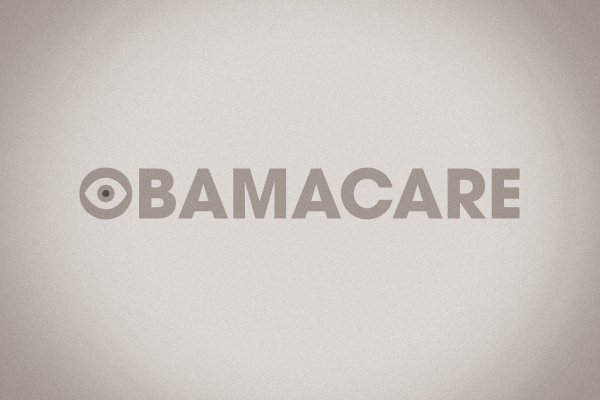USA Today reports from Washington that many of the problems that have plagued the HealthCare.gov website stemmed from high demand for health insurance coupled with confusion between contractors. So an official with a top government contractor will say in prepared testimony to a House panel on Thursday.
Tag Archives: aca
Even The New York Times Is Suggesting Catastrophic Insurance Plans
In his new New York Times healthcare piece, “Driving a New Bargain on Health Care,” Tyler Cowen spells out the hard truth of Obamacare failings. Based on his prognosis, a lack of states extending Medicaid coverage will leave millions uninsured. This isn’t something that should excite anyone. However, it’s leading to wake up calls from top journalists. In his assessment Cowen offers a reaction to this shortcoming:
“At the same time, I’d recommend narrowing the scope of required insurance to focus on catastrophic expenses. If insurance picks up too many small expenses, it encourages abuse and overuse of scarce resources.”
As you know, we’ve been suggesting this for years now. When we as a nation can’t provide care for our own, that’s failing. But when we know something isn’t working (health insurance as health maintenance, for one) and we keep doing it, that’s even worse. So yes, while we’re nowhere near a solution, we’re moving towards a society that recognizes one thing: coverage is not care. It’s a point worth mentioning, because to many people, the idea that EVERYONE is insured sounds like utopia. For now, we’ll be the squeaky wheel reminding you that this isn’t really the case.
Obamacare? Let CNBC Explain…
President Barack Obama has passed his landmark healthcare reform law. It’s referred to by several names—the Patient Protection and Affordable Care Act, or just the Affordable Care Act—but even the president uses the critic’s name: Obamacare.
Sure, the name is simple. But this is a complicated law. It wants to tackle two problems: first, it seeks to provide affordable health insurance to just about every American, and second, it wants to slow down the rate of inflation of healthcare costs, which account for nearly one-fifth of America’s economy (you saw John Green’s brilliant video, right?).
Okay, insurance for everyone sounds nice. We’re not going to argue with that sentiment, although the methodology might backfire. However, this second point sounds ludicrous.
“Add red tape to curb American healthcare costs? That’s like pouring gasoline on a fire because it’s liquid.” – @AtlasMD [CLICK TO TWEET]
Oh, and “the ACA will cost the government $1.36 trillion to implement over the next decade, according to estimates by the Congressional Budget Office,” says CNBC. Excellent. That’s just another tab that’s going to have to be picked up by someone, most likely someone who works and pays taxes.
Make Sure Any Uninsured Patients Are Obamacare-Enrolled by Valentine’s Day
You don’t know how much it hurts us to have to cooperate with Federal impositions, but… we’re all in this, direct care docs, concierge docs, and fee-for-service docs planning on transitioning. We found a Washington Post article (article no longer available on Washington Post’s website) that explains an unfortunate loophole (or fortunate, if you’re the one collecting the fines). As you may have heard, March 31 was the declared cut-off date to avoid any Obamacare fines. But nope, it’s come to light that patients will not be considered “insured” until the two weeks of processing is completed (we’ll pretend their submission is “taking a red tape holiday”), and get this, insurance is typically activated on the first of the month. What’s this mean? Patients need to enroll six weeks before the cutoff date, February 15, 2014, to avoid any fines.
Here’s the brief explanation from the Jackson Hewitt tax preparation company. They first pointed out the wrinkle with the health care law’s least popular requirement.
The explanation:
Health insurance coverage typically starts on the first day of a given month, and it takes up to 15 days to process applications.

More Red Tape, More Problems…
Bloomberg.com followed up on the Obamacare sign-up fiasco. Depending on the source, it might sound like Armageddon or a minor rain shower. Regardless, a program this large was guaranteed to hiccup. However, this hiccup is relevant. Patients who have actually completed their portion of enrollment, and submitted information to the exchange and opted for a plan, are facing a red tape problem — their electronic files are inaccessible or incomplete, thereby stymying insurance processing. Insurers are throwing their hands in the air, saying they can’t do anything, and leaving the subscribers out to dry. It gets worse. These participants might not be technically “insured” come January 1, 2014, and could face a fine.
So what’s the take away? More red tape, more problems.
READ BLOOMBERG’S FOLLOW UP ON OBAMACARE ENROLLMENT
These are the types of bureaucratic headaches that our Atlas.md EMR software was built to avoid. Great news, the free beta version of our software just launched. You can sign up here.
NPR Breaks Down Obamacare’s Effect on Insurance Rates
NPR published an article reviewing introductory rates on policies offered through state-run insurance exchanges. The report examined 36 different states. So what’s the verdict? A resounding “it depends.” In Oklahoma, premiums are going for as low as $96/month. Meanwhile, in Wisconsin, the lowest rate on a bronze plan is well over $300. The reporter echoed our direct care mantra, saying, “Competition equals lower prices.” They explained how in regions with only one insurance company selling through the subsidized exchange, the average monthly premium for a 21-year-old buying the lowest cost bronze policy is $186, before any subsidies are applied. However, in regions with 10 or more rival carriers, the average cost is $132 or less.
How will Obamacare’s varying premium rates affect direct care practices?
Actually, there are two wins happening. If you’re a doctor looking to move to open a cash-only clinic, you’ll bode well in regions with only one insurance plan offered through the exchange. Lower competition tends towards higher insurance rates, meaning that wrap-around plans and your direct care offering can add tremendous value. Secondly, in areas with fewer insurance plans offered on the exchange, there is another effect: increased premiums for existing subscribers. In this case, because of the lack of competition, and the fact that Obamacare is forcing insurance companies to expand their offerings, rates might reach an exorbitant level for the subscriber. This is another patient who would benefit greatly from switching to a wrap around plan (remember, Obamacare means that insurance plans can’t raise their rates for pre-existing conditions) and enrolling in your direct care clinic.
Congressman Mike Rogers Shreds Federal Healthcare Reform
In case you missed it, you can watch Mike Rogers impassioned response to the soon-to-be enacted ACA. He makes a powerful stand for American innovation in the private sector. Although he doesn’t explicitly mention direct care, we’re glad to draft behind this convincing powerhouse.
Rogers is the U.S. Representative for Michigan’s 8th congressional district, serving since 2001.

Looming Health Care Changes Worry Businesses
So we’ve been promoting direct care for years now, touting the freedom it gives us, the time it allows us to spend with patients. One thing we don’t always associate with being a doctor, though, is the entrepreneurship necessary to get a small business off the ground. Joining the direct care movement is a powerful decision for two reasons: one, you’re making the choice to serve patients, not bureaucracy. Two, you’re running your own business.
That said, if you’re running a small business, or plan to run one, you’ve likely conversed about Obamacare hampering the economy. Here’s a recent article from Business News Daily updating how businesses are gearing up for ACA enactment later this year. There wasn’t much by way of good news. Business News Daily reports, “Among small businesses surveyed that will be affected by the employer mandate, one-half said they will either cut hours to reduce full-time employees or replace full-time employees with part-timers to avoid the mandate. Additionally, 24 percent plan to reduce hiring to stay under 50 employees.”

Six In 10 Physicians Believe Many Doctors Will Retire Earlier Than Predicted
A Deloitte survey reports that a majority of physicians believe many doctors will retire earlier than planned in the next one to three years. The same percentage think medical experts losing control of their clinics will jeopardize the healthcare administration. This group also believes strongly that implementation of the Affordable Health Care for America Act, or Obamacare, will push doctors out of the primary care industry altogether.
A spokeswoman for the Association of American Physicians and Surgeons, Dr. Jane Orient, was not surprised by the results at all. In a recent WND article, it was reported that she said doctors already have started leaving the profession through early retirement. Of course, some will instead seek alternatives to what they see coming in the federal government’s takeover of health care. And that’s why we’ve been championing our model of direct care. Because the worst outcome is a doctor not practicing at all. And if that’s what an overregulated market will encourage, then we have a serious problem.

LINKS: Will “Federal Data Services Hub” Pose An Obamacare Privacy Risk?
We came across an opinionated article on Rare.us asking, “Would you trust thousands of low-level Federal bureaucrats and contractors with one-touch access to your private financial and medical information?” Our immediate answer was of course not. But with Obamacare’s enactment, we might not have a choice. That’s because of something called the Federal Data Services Hub. This Data Hub will supposedly be a comprehensive database of personal information established by the Department of Health and Human Services (HHS) to help with the federally facilitated health insurance exchanges.
To paraphrase, with Obamacare, each state will need to have a transparent state insurance market (currently not every state has one). If a state creates and operates one themselves, then great. But if they don’t, the government will “run” one for them. And to help “run” this state insurance market, the Obama administration is planning to hire “tens of thousands” of “navigators” earning “$20 an hour or more” to help guide buyers to their taxpayer-funded coverage, according to the Washington Examiner.
Here’s a round-up of articles to give you a more complete picture of the Federal Data Services Hub: